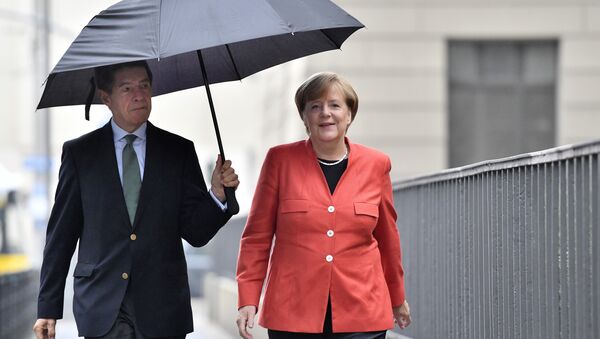Following the election, Merkel's Christian Democratic Union party will make up the largest voting bloc in the the country's parliament —
the Bundestag — with an estimated 218 seats, according to The Guardian.
The 2017 CDU vote tally is down from the 2013 election, and will likely see Merkel with less power in her fourth term in office.
The far-right, anti-immigration AfD opposition party also marked an unprecedented win, with 13.5 percent of the vote and 87 seats. After earning seats in the parliament for the first time, the AfD win comes to the first openly nationalist party in the Bundestag in over 60 years, and marks a stark change from the centrist policies of post-World-War-II German parliaments.
Merkel, in a post-election speech, remarked that the relatively low CDU vote tally was due, in part, to what she referred to as the "extraordinary challenge" of the 2015 European migrant crisis.
She promised to take into account the wishes of AfD voters and attempt to realize her party's policy goals through the use of "good politics," although some Bundestag members are claiming that "Nazis have returned to parliament."



